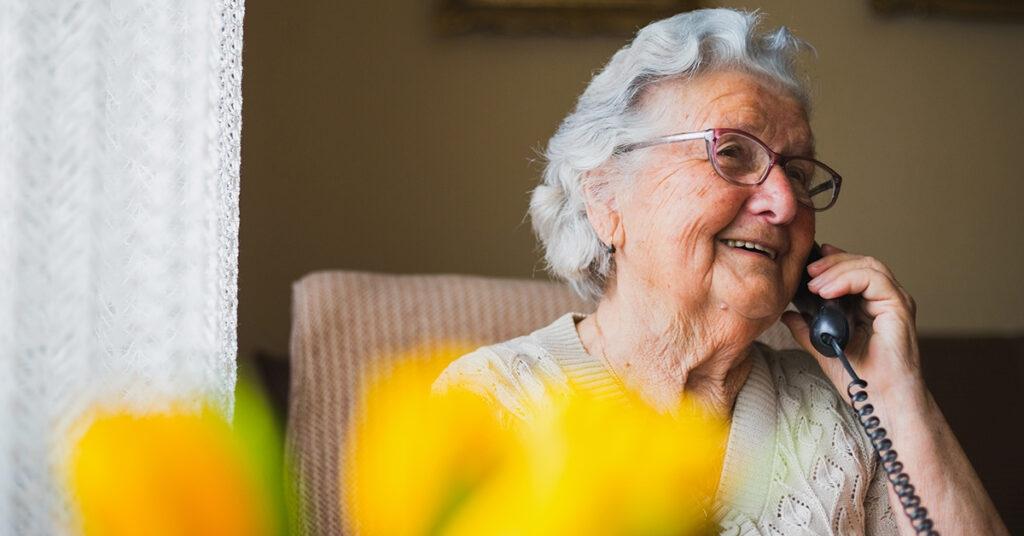Is it Aging or is it Dementia? How to Spot Symptoms

Many of us get a little forgetful as we get older. We forget where we put our keys. We go into a room and momentarily forget why we went there. Or much to our embarrassment, we have trouble remembering people’s names.
As frustrating as these short-term memory lapses are, they’re no reason to worry yourself sick about them. Most people experience some loss of memory in their 70s and 80s. Some people start to notice it as early as their 50s.
But memory loss can be a symptom of dementia. Alzheimer’s disease is the most common form of dementia, affecting one in 10 people 65 and older. Symptoms of Alzheimer’s may include memory loss, but the disease also affects your ability to think clearly; use language; and be your normal, cheerful self.
If memory problems are going beyond the occasional “Where did I put my glasses?” — and people around you are noticing your forgetfulness — have your doctor check it out to see what’s going on. It may not be dementia after all. Symptoms of memory loss and confusion can be caused by any number of things, such as urinary tract infection, abnormal blood sugar levels, vitamin B12 deficiency, sleep apnea, thyroid problems, medication side effects or alcohol abuse.
Know the Signs of Dementia
The early symptoms of dementia are more varied than being a bit forgetful. To be diagnosed with dementia, someone must show at least two (or more) of these 10 warning signs.
- Memory problems that affect daily life. Important dates and events, well-traveled routes, the names and faces of friends and colleagues — if your loved one can’t remember these facts on a regular basis, it could be an early sign of dementia.
- Difficulty with planning and problem-solving. Is Mom having trouble following a recipe? Is Dad forgetting to pay the bills? Making occasional errors when balancing the checkbook is normal. But if it’s a regular occurrence, it might be time to set up automatic payment of their monthly bills and make lists to aid their memory.
- Problems finding the right word. People with early dementia may substitute the word they’re after with something similar, such as a watch becoming a hand clock. They may stop mid-conversation and have no idea how to continue. Following the thread of a conversation may also be difficult, especially in noisy environments.
- Confusion about time and place. Losing track of time and place may be a sign of early dementia. Especially if the person forgets where they are or how they got there.
- Poor judgment. If your frugal parent starts spending money on things she doesn’t need, watch out. Poor hygiene or having trouble taking care of a pet are other signs that the brain is not firing on all cylinders.
- Increasing clumsiness. Dementia causes problems judging widths and distances. Falls become more common. Driving accidents become an issue. If your loved one’s getting clumsier, check it out before someone gets hurt.
- Misplacing things. Once in a while, you may forget where you left your keys or phone. But if you retrace your steps, you find it eventually. A person with dementia loses that ability. They may even put things in unusual places. If the phone’s in the refrigerator, talk to your loved one to learn what else is happening with them.
- Mood changes. In the early days of dementia, people’s moods may swing rapidly between sadness, fear and anger. Another sign is when a loved one always seems to be in a bad mood for no apparent reason, often finding fault and picking at you.
- Loss of interest and initiative. If your loved one’s lost interest in their usual activities, or needs prompting to join in with what family and friends are doing, that’s a signal something’s not right.
- Changes in personality. If someone’s behavior becomes abnormal, that could be a sign of dementia. Common changes include becoming confused, suspicious, withdrawn, angry or uninhibited. So if your prim and proper mother starts swearing like a trooper, take note.
To Put Your Mind at Ease, See Your Doctor
If you suspect dementia, give your doctor as much information as you can about your — or your loved one’s — symptoms and behavior. For example, have there been any changes in medication? Is your loved one fine one day and confused the next?
Once you have a diagnosis of dementia, you can start planning how to manage the symptoms and even slow down their effects with medication. The diagnosis may come as a shock or a relief. In some cases, people may not understand what you’re telling them or may deny it. If they respond well, provide additional information. Most importantly, reassure your loved one that you’ll do all you can to support them.
To Reduce Your Risk of Dementia, Maintain a Healthy Lifestyle
The World Health Organization estimates that, after we turn 60, only 5% to 8% of us will live with dementia at some point. One sure way to reduce your risk of dementia is to make healthy lifestyle choices, including regular exercise, a healthy diet, social engagement and intellectual stimulation. At Meadow Ridge, we support healthy living with a holistic approach to wellness. To learn more about our healthy approach and how it can make a positive difference in your life, contact us.